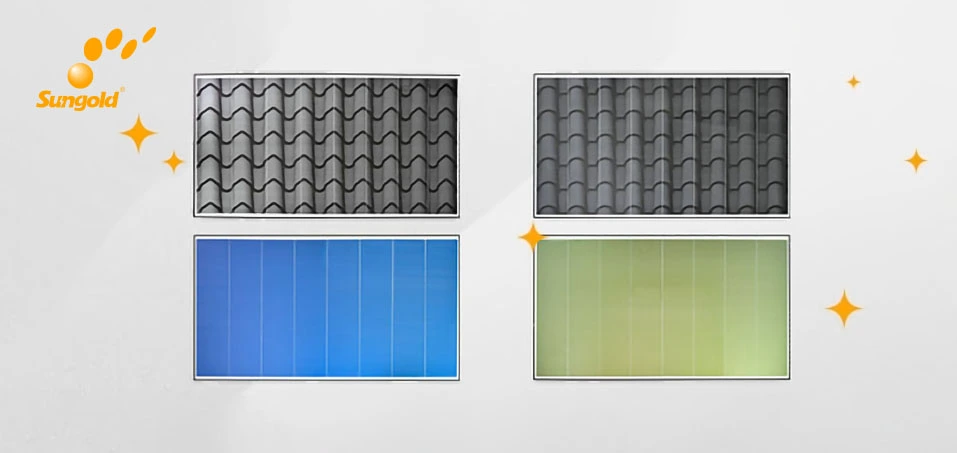Solar panels have revolutionized the way we harness renewable energy from the sun, providing an eco-friendly and sustainable alternative to traditional power sources. With advancements in technology, Solar panels come in three main types: monocrystalline, polycrystalline, and thin-film.
Each type has its distinct advantages and disadvantages. The best solar panel for your installation depends on factors unique to your property and desired system characteristics.
Consider aspects like space availability, efficiency requirements, budget, and environmental conditions when making your choice. Seeking advice from a solar energy professional or installer can help you select the most suitable solar panel type for your specific needs.
3 Main Types of Solar Panels
Monocrystalline Solar Panels
Monocrystalline solar panels are renowned for their high efficiency and sleek appearance. They are made from single-crystal silicon, ensuring a uniform black color. Here are some key features and benefits of monocrystalline solar panels:
- Superior Efficiency: Monocrystalline panels have the highest efficiency among solar panel types, converting a larger percentage of sunlight into electricity. This makes them ideal for installations with limited space, maximizing energy production.
- Space-Saving Design: Due to their high efficiency, monocrystalline panels require less space to generate the same amount of power as other types. This makes them suitable for rooftops and areas with restricted space.
- Enhanced Performance in High-Temperature Conditions: Monocrystalline panels maintain their efficiency better in high-temperature environments, ensuring consistent power output during hot summer months.
- Premium Option: While offering excellent performance, these panels are relatively more expensive than other types. However, their long lifespan and efficiency make them a valuable investment for homeowners and businesses alike.
Polycrystalline Solar Panels
Polycrystalline solar panels, also known as multi-crystalline panels, are another popular choice for solar energy solutions. They are made from multiple silicon crystals, giving them a distinctive blueish appearance. Here are the highlights of polycrystalline panels:
- Cost-Effective: Polycrystalline panels are more budget-friendly than monocrystalline panels, making them an attractive option for those seeking cost-effective solar solutions.
- Suitable for Larger Installations: With slightly lower efficiency than monocrystalline panels, polycrystalline panels are ideal for larger installations where ample space is available.
- Versatility: These panels can perform well in various environmental conditions, making them a practical choice for diverse geographic locations.
- Blueish Hue: The blueish color of polycrystalline panels can be appealing to some homeowners, adding an aesthetic touch to solar installations.
Thin-Film Solar Panels
Thin-film solar panels are a cutting-edge alternative to traditional crystalline panels. Instead of using silicon wafers, thin-film panels are made by depositing photovoltaic material on different substrates like glass, metal, or plastic. Here’s what sets thin-film panels apart:
- Lightweight and Flexible: Thin-film panels are incredibly lightweight and flexible, allowing for installation on curved or irregular surfaces. They are ideal for applications where weight matters, such as backpacks and portable solar chargers.
- Better Low-Light Performance: Thin-film panels perform more efficiently in low-light conditions, making them suitable for regions with frequent cloud cover or shading issues.
- High-Temperature Tolerance: Compared to crystalline panels, thin-film panels can handle higher temperatures, ensuring stable power output even in hot climates.
- Innovations in Building-Integrated Photovoltaics (BIPV): Thin-film panels have opened the door to new possibilities in integrating solar technology into building materials, creating energy-efficient buildings with seamless solar integration.
Pros and Cons of 3 Main Types of Solar Panels
Solar panels come in different types, each offering unique advantages and disadvantages. The three main types of solar panels are monocrystalline, polycrystalline, and thin-film. To help you make an informed decision when choosing the most suitable solar panel for your needs, we have prepared a comparison table below.
This table highlights the pros and cons of each type, considering factors such as efficiency, appearance, space efficiency, cost, versatility, performance in different conditions, and more. Understanding these key differences can guide you toward selecting the perfect solar panel type for your installation.
| Criteria | Monocrystalline | Polycrystalline | Thin-Film |
|---|---|---|---|
| Efficiency | High efficiency | Moderate efficiency | Moderate to low efficiency |
| Appearance | Uniform black | Blueish | Varies depending on the substrate |
| Space Efficiency | Space-efficient | Requires more space | Space-efficient |
| Performance in High Temperatures | Performs well | Slightly less efficient | Performs well |
| Cost | Higher cost | Cost-effective | Cost-effective |
| Versatility | Limited flexibility | Limited flexibility | Highly flexible |
| Weight | Heavier | Heavier | Lightweight |
| Low-Light Performance | Good performance | Good performance | Excellent performance |
| Environmental Suitability | Wide range of climates | Wide range of climates | Ideal for cloudy regions |
| Lifespan | Long lifespan | Long lifespan | Moderate lifespan |
| Aesthetics | Sleek and uniform | Blueish color | Varies depending on the substrate |
| Application | Residential rooftops | Larger installations | Portable and BIPV applications |
What we want to say
With the wide variety of solar panels available today, utilizing solar energy has become more convenient and efficient than ever. Whether you prioritize space savings, cost-effectiveness, or flexibility, there is an awesome solar panel to meet your needs.
When planning a solar installation, choose a professional solar panel manufacturer and consider consulting with a solar professional to ensure the most suitable system features for your property or project’s needs.












